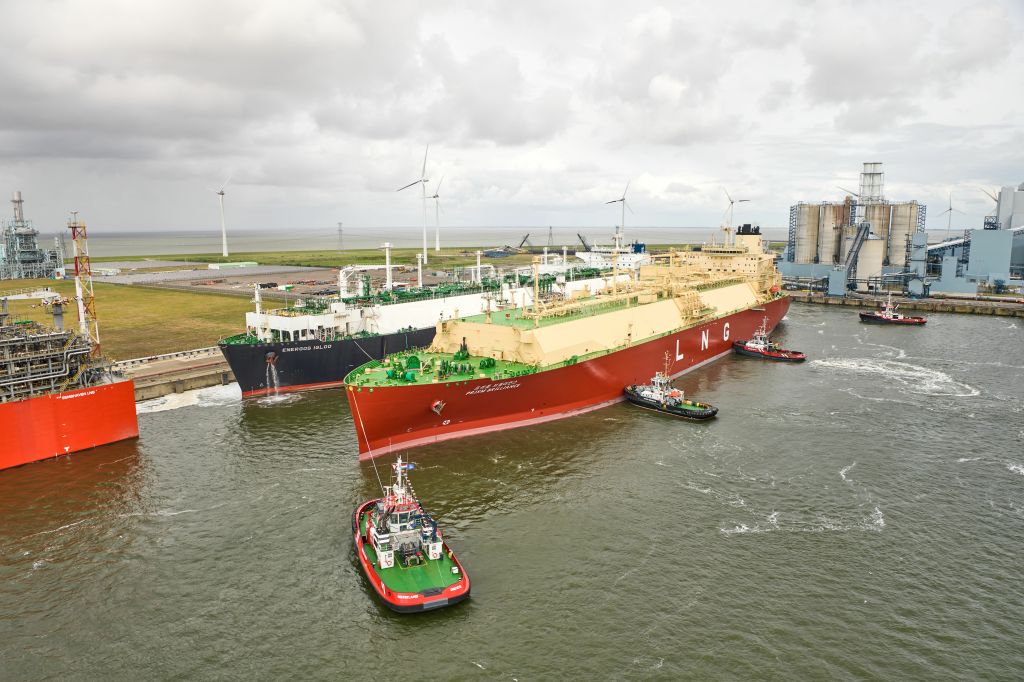This story requires a subscription
This includes a single user license.
The Eemshaven LNG hub consists of two chartered floating storage and regasification units – the 170,000-cbm FSRU Energos Igloo, owned by Energos Infrastructure, and the 26,000-cbm barge-based FSRU Eemshaven LNG, owned by Exmar.
The terminal has a capacity of 8 billion cubic meters and supplies natural gas to capacity holders UK-based Shell, Czech utility CEZ, and France’s Engie.
Shell booked 4 bcm per year of the capacity, CEZ reserved 3 bcm per year, and Engie booked the rest.
Currently, the LNG import contracts will end in the second half of 2027.
Binding phase in May or June
Last year, Gasunie and Vopak, each with a 50 percent stake in the EemsEnergyTerminal, together with the Dutch Ministry of Climate Policy and Green Growth (formerly the Ministry of Economic Affairs and Climate Policy), announced that they would look into the possibility of keeping the terminal in operation longer.
The two firms launched an open season on Monday to market terminal capacity following “strong interest” by parties in the market consultation last year.
“Such collaboration is essential for keeping the terminal operational after 2027. A final decision on this is expected at the end of this year,” the two firms said.
Gasnuie and Vopak are marketing terminal capacity starting September 1, 2027, for a period of 8 years.
According to the partners, the bundled product on offer will consist of a number of unloading slots including (temporary) storage and sendout rights with maximum flexibility.
The documents must be submitted before February 26.
“Qualifying as an interested party is a prerequisite to participate in the binding phase, which is tentatively scheduled to start in May or June 2025,” they said.
In addition to the extension of the EemsEnergyTerminal, Gasunie and Vopak are jointly investigating the possibilities for building a hydrogen import terminal and developing a CO2 transport hub at the port of Eemshaven.

